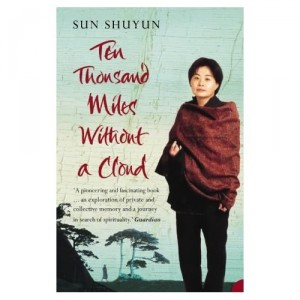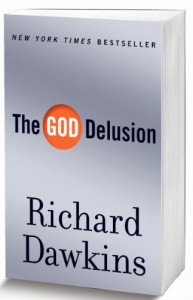
- Ten Thousand Miles Without a Cloud
Ten Thousand Miles Without a Cloud is written by Chinese author Sun Shuyun who grew up during the cultural revolution. It begins by telling of her childhood in a family lucky enough to be aligned with the communist policies of the day. By virtue of this background Sun Shuyun was able to enter Beijing University to study English. This in turn lead her to being accepted for Oxford University in 1986. Her grandmother though, who was subject to some ridicule by the family, continued to follow the dictates of Buddhism and in particular the figure of a buddhist monk Xuanzang 599-664AD.
Buddhism in the time of Xuanzang had gone into decline and he began a journey along the Silk Road to India and back that took him 18 years to complete. Sun Shuyun follows his journey using modern forms of transport and finds that this Buddhist master is still revered at many points along the journey.
The wisdom that Xuanzang gained on the journey touched and revivified not only those he connected with on his return but also some of the people he met along the way and ultimately the way Buddhist philosophy was more deeply embraced in China. In the same way Sun Shuyun was touched by wisdom as her journey unfolded and she examined her life in the light of not only Xuanzang’s teachings but also through the benefit of hindsight.
There’s a wealth of Buddhist wisdom within the covers. I found it quite serendipitous that she one of the stories she tells of the Buddha, came from a man, Andrew, she met at the site of the Bodhi Tree where the Buddha became enlightened. As they parted company he felt the need to leave this story with her….
Once upon a time a monk came to Bodh Gaya and started praying earnestly to the Buddhist statues Then he thought he saw the Buddha praying to the images too. He was shocked. “You are the Buddha” Why are you praying to yourself?” The Buddha replied: “That is my point. Pray to yourself, not to anyone else.”
Earlier he’d passed on another story the Buddha used to make a point about his teachings…. ….
Coming to a stretch of water a traveller was in desperate need to cross it so he built himself a raft and rowed himself across the river. The Buddha posed a question to his listeners, “What should he do with the raft? Should he decide that it had been so helpful to him that he should load it on his back and carry it with him wherever he went? Or should he simply moor it and continue on his journey. In just the same way, my teachings are like a raft, to be used to cross the river but not to be held on to.”
It seemed quite apt when I watched the movie Nanny McPhee about a widower and his seven unruly children last night. The children take great pride by frightening off all the nannies he employs until the magical Nanny McPhee comes into their life. In the course of her altercation with she utters the following …“When you need me but do not want me I must stay. When you want me but do not need me I must go”.
It fits quite nicely with the analogy of the raft. She was there to carry them to a new understanding of their place in the scheme of things and preparing them for the next phase of their journey.
Following on from Ten Thousand Miles Without a Cloud I began reading the God Delusion by Richard Dawkins. It is an in depth discussion on Atheism looking at the ways religion doesn’t inspire us to an ethical and moralistic world view. He brings observations from his own and others studies showing how science and in particular a Darwinistic outlook can help us see the ideas we need to embrace as human beings aiming to live together in harmony with each other and the natural environment. Similar to Buddhism he sees the concepts of compassion, generosity and charity present in the Darwinian model of evolution and natural selection.
Whatever it is that can act as a raft to bring us to another shore of understanding in my mind must be beneficial. Within all of these ideas the sense that communities working together for the common good comes through. This cooperation within each particular species whether it be human, animal, insect, is what enables evolution.


